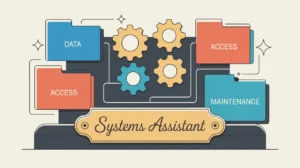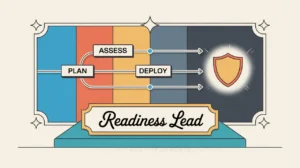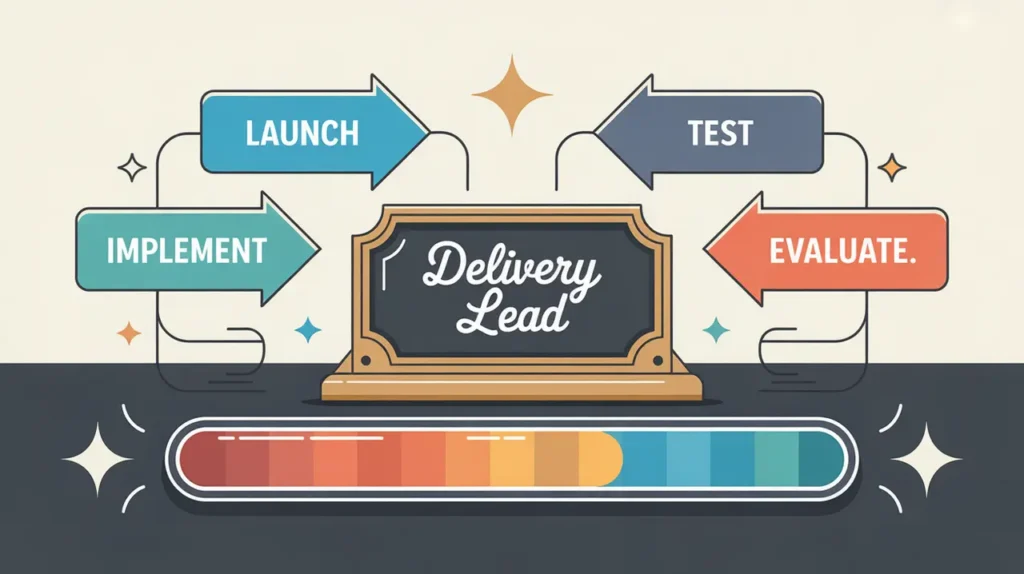What Does the Chief Program Officer Role Involve?
A chief program officer (CPO) is responsible for leading and overseeing an organization’s program strategy, design, implementation, and impact. This involves ensuring that programs are aligned with mission and strategic priorities, are operationally sound, and deliver measurable outcomes. The CPO works closely with the CEO, executive team, program leads, and external partners to shape strategic initiatives, guide program innovation, and strengthen delivery systems. They often manage multiple portfolios, ensuring quality, coherence, and impact across diverse geographies, themes, or service areas. In both nonprofits and social enterprises, the chief program officer plays a central role in turning strategy into tangible results that advance the organization’s mission.
At What Level does this Role Operate?
Executive Level: This role operates at the highest level of organizational leadership, typically reporting to the CEO and serving as part of the executive team. The CPO oversees program teams and collaborates across departments to ensure that programmatic priorities are effectively integrated with operations, finance, policy, and external engagement.
Relative Employability: Executive program leadership roles are consistently in demand across nonprofits, social enterprises, international NGOs, and philanthropic institutions. Organizations seek leaders who can combine strategic vision, technical expertise, and operational excellence to drive impact at scale.
Relative Pay Scale: Within nonprofits and social enterprises, chief program officer roles sit in the highest executive pay bands, reflecting their broad strategic scope and accountability for mission delivery.
What are the Key Responsibilities and Activities?
- Lead the development and execution of the organization’s program strategy in alignment with mission and goals
- Oversee program design, implementation, and quality assurance across multiple portfolios or geographies
- Ensure programmatic alignment with strategic priorities and operational capacities
- Supervise senior program leads and build organizational capacity for effective delivery
- Monitor and evaluate program performance to ensure outcomes and impact are achieved
- Foster program innovation and cross-functional collaboration
- Partner with external stakeholders, funders, and communities to strengthen program design and reach
- Advise the CEO, board, and executive team on programmatic trends, risks, and opportunities
What Core Competencies and Qualifications are Needed?
Required Qualifications and Experience
The following reflect common qualifications and experience expected for this role, while recognizing that pathways may vary by context, organization, and region.
- Relevant academic background in program management, international development, public administration, or a related field, or equivalent professional experience
- Extensive leadership experience overseeing program portfolios, ideally at the senior or executive level
- Deep understanding of program strategy, implementation, and impact measurement
- Proven ability to lead diverse teams and manage complex, multi-stakeholder initiatives
- Experience collaborating with funders, partners, and communities to co-create and deliver impactful programs
Key Competencies
- Strategic program leadership and design expertise
- Operational management and delivery skills
- Strong analytical and impact measurement abilities
- Cross-functional leadership and collaboration
- Excellent communication and stakeholder engagement skills
- Capacity to innovate and adapt programs to changing contexts
- Commitment to mission and impact
How are AI and Automation Shaping this Role?
An AI-native chief program officer will look to AI and automation to enhance program design, monitoring, and decision making. They can use AI tools to analyze program data, identify emerging trends, and model different delivery scenarios. Automation can support performance tracking, reporting, and coordination across program teams, freeing leadership to focus on strategic alignment and innovation. By integrating AI thoughtfully, CPOs can strengthen program effectiveness, scale impact, and adapt quickly to changing conditions.
What Career Pathways and Transferable Skills are Associated with this Role?
Chief program officer roles are senior leadership positions that often serve as stepping stones to CEO or executive advisory roles. The combination of strategic vision, programmatic expertise, and operational leadership developed in this role is transferable across nonprofits, social enterprises, international NGOs, philanthropic organizations, and public institutions. CPOs are well positioned to influence strategy, shape systems, and lead impact-driven organizations at scale.







